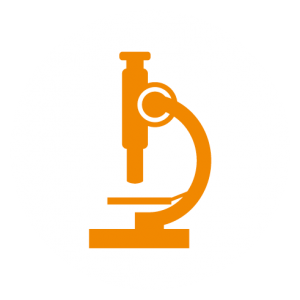![]() HUMAN PLATELET LYSATE –
HUMAN PLATELET LYSATE –
THE FORWARD-LOOKING & SUPERIOR FBS ALTERNATIVE
Promotes cell growth and makes your research ethically justifiable and sustainable

Promotes cell growth and makes your research ethically justifiable and sustainable
You are still using FBS in cell culture?
Time to improve your trials through hPL!
Why is human Platelet Lysate worth being considered as an FBS alternative?
Human Platelet Lysate (hPL) is a xeno-free cell culture supplement for experimental and clinical cell culture. PL BioScience Human Platelet Lysates are manufactured from human blood platelets obtained from healthy blood donors at licensed blood centres.
Human Platelet Lysate is a rich source of proteins and growth factors, which support the proliferation of various human and animal cell types.
What are the problems related with FBS?
The use of FBS inherits different problems – in a scientific, safety and ethical point of view:
FBS suffers from enormous variability in performance from batch-to-batch and from supplier-to-supplier. Thus, it is difficult to gain valid and reproducible results. As an animal-derived product, FBS harbours the risk of transmitting infectious agents. Furthermore, it is a potential source for microbial contamination and safety concerns for laboratory personnel has been raised (sources: Dormont D. Transmissible spongiform encephalopathy agents and animal sera. Dev Biol Stand. 1999. / Wessmann SJ, Levings RL. Benefits and risks due to animal serum used in cell culture production. Dev Biol Stand. 1999. / Hawkes P. W. Fetal bovine serum: Geographic origin and regulatory relevance of viral contamination. Bioresources and Bioprocessing. 2015).
Next to this, unpredictable external factors (weather conditions, outbreak of diseases) have a great impact on FBS availability – resulting in unstable pricing. At the same time, there is an increasing demand for cell culture supplements as the field of cell and tissue culture research is growing. As a consequence, a global shortage in FBS-supply is predicted and alternatives have to be established (source: Burnouf T. Multifaceted regenerative lives of ‘expired’ platelets. ISBT Science Series. 2018).
Considerable ethical concerns regarding FBS collection have been raised: The blood of unborn calves (recognised during slaughter of a pregnant cow) is collected by syringe from the beating heart, which raises severe animal welfare concerns. Figures estimate that about 800,000 litres of FBS are produced annually worldwide, corresponding to 2,000,000 bovine foetuses, with numbers still increasing (source: Brindley et al. Peak serum: implications of serum supply for cell therapy manufacturing. Regen. Med. 2012).
For these reasons, there is a clear recommendation to replace FBS. Human Platelet Lysate is emerging as a safer growth medium supplement that can gradually substitute for FBS.




PL BioScience HPL’s are manufactured to meet the needs of daily research work:

High proliferation rate
Our HPL products yield improved cell growth in short time due to a in vivo-comparable cell environment.
Economical benefits
Our products offer a cost-effective alternative to FBS. For example, 2.5 to 10% of our ELAREM™ Human Platelet Lysate can replace 10% FBS.
Xeno-free
HPL is a safe and ethically justifiable FBS alternative: It eliminates the risk of xenogeneic agent and bovine prion transmission.
 Safety
Safety
Our hPL is manufactured from platelet units obtained from healthy blood donors at licensed blood centres.
 Reproducible results
Reproducible results
No need to stock up your lab freezer in advance. Due to large batch sizes, reproducibility within different charges is ensured.
Which environmental factors play along with the production of FBS?
Cattle farms:„At present, about 70% of the deforested land in the Amazon is used for cattle (…)” (7)
Why is it important to talk about the environmental impact of cell culture?
The Market of regenerative medicine, drug development and vaccine production is growing every year. This also the need for cell culture media:
How much FBS is used?
FBS market: USD 1428.72 million by 2026 – resulting in 1785900 liters of FBS (800 dollar per liter) (3)
“The worldwide annual demand for fetal calf serum amounts to around 800,000 liters. This means that, according to one estimation of the European Biomedical Research Association, each year 1 to 2 million calves worldwide have to die painfully in this way.“ https://www.aerzte-gegen-tierversuche.de/en/resources/animal-free-research/84-fcs-free-culture-media-without-fetal-calf-serum